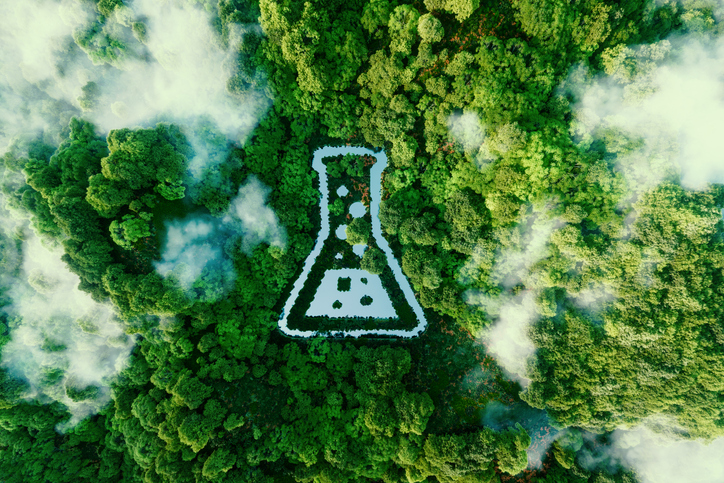AI4Green: How AI is Powering the Next Generation of Sustainable Chemistry

Published: June 19, 2025
The intersection of artificial intelligence and chemistry is proving to be fertile ground for sustainability breakthroughs. A research team at the University of Nottingham has developed new AI-powered tools that help chemists and chemical engineers optimize their synthetic routes and laboratory choices with the environment in mind.
Led by Professor Jonathan Hirst, a Royal Academy of Engineering Chair in Emerging Technologies, the team enhanced retrosynthesis algorithms—a core computational technique used to plan how complex molecules can be built from simpler starting materials. The new approach not only delivers improved synthetic efficiency but also integrates sustainability metrics to help researchers select greener options during synthesis design.
Their work, published in the Journal of Chemical Information and Modeling, is available to the public via the open-source AI4Green platform, an electronic lab notebook designed for sustainable chemistry.
From Reaction Planning to Solvent Selection: Greening Every Step
One of the standout features of AI4Green is its interactive machine learning engine for solvent selection. Solvents are often the largest component by mass in a chemical reaction and frequently the most environmentally damaging. The AI4Green platform recommends alternative solvents with better environmental profiles, enabling researchers to maintain performance while reducing ecological impact.
“Chemical processes are central to innovation across industries—from pharmaceuticals to materials science,” said Prof. Hirst. “But they often come with a heavy environmental cost. With AI4Green, we’re offering an intuitive, powerful toolkit to help chemists make smarter, greener decisions.”
Teaching the Chemists of Tomorrow
To ensure these tools are widely adopted, the Nottingham team has collaborated with the UK’s Physical Sciences Data Infrastructure (PSDI) to develop a teaching version of AI4Green for use in academic laboratories. It is now being used by undergraduate students in the School of Chemistry at Nottingham, embedding sustainability thinking into their lab education from the start.
The pedagogical version not only introduces students to digital research environments but also promotes ethical thinking in chemistry—training future scientists to consider the full lifecycle of their chemical choices.
Why This Matters
The significance of this development lies in the systemic shift it encourages across chemical research. Traditionally, green chemistry principles have been added on as an afterthought. AI4Green flips that script—integrating sustainability into the earliest stages of reaction design and experimentation.
By combining open-access tools, real-time sustainability metrics, and user-friendly design, this initiative has the potential to impact both academia and industry by reducing chemical waste, promoting safer processes, and accelerating eco-conscious discovery pipelines.
Reference and Source
Original article from AZoM: https://www.azom.com/news.aspx?newsID=64672
Try AI4Green online: https://ai4green.app
Sponsored by PWmat (Lonxun Quantum) – a leading developer of GPU-accelerated materials simulation software for cutting-edge quantum, energy, and semiconductor research. Learn more about our solutions at: https://www.pwmat.com/en
📞 Phone: +86 400-618-6006
📧 Email: support@pwmat.com

Comments
Post a Comment